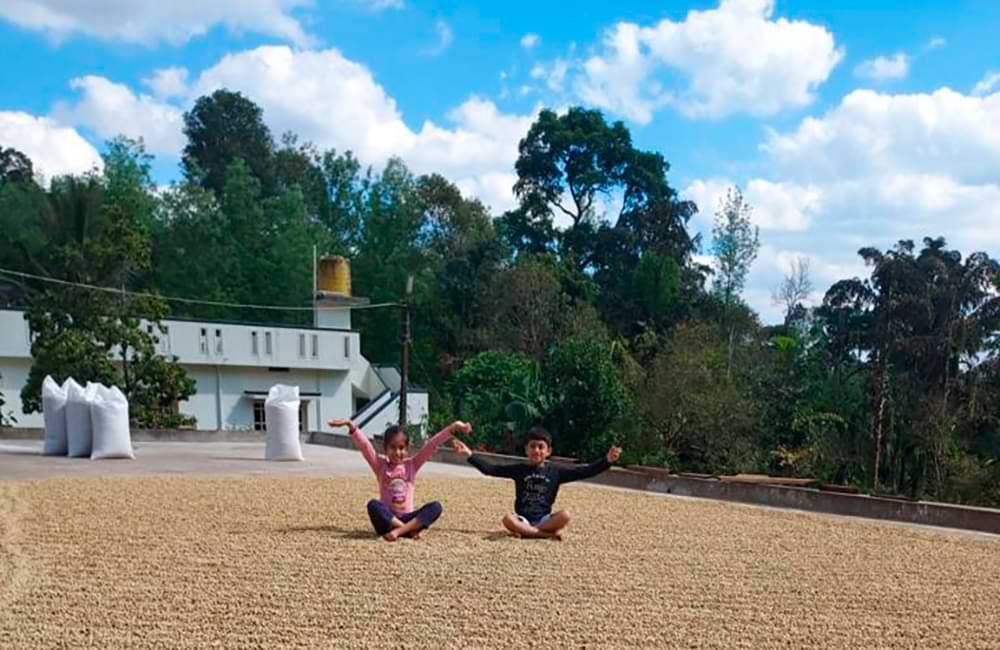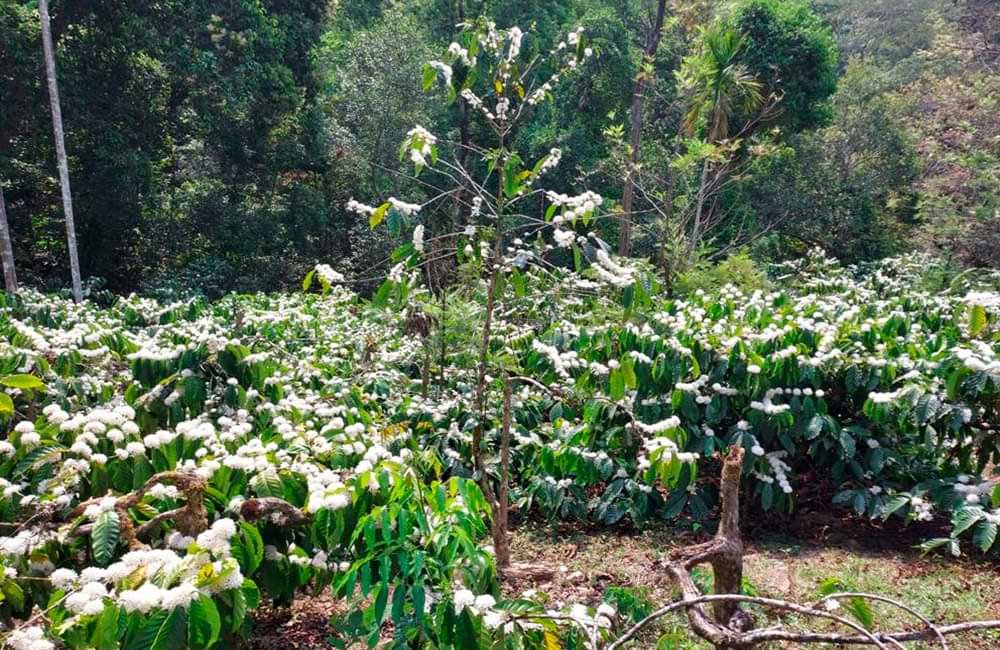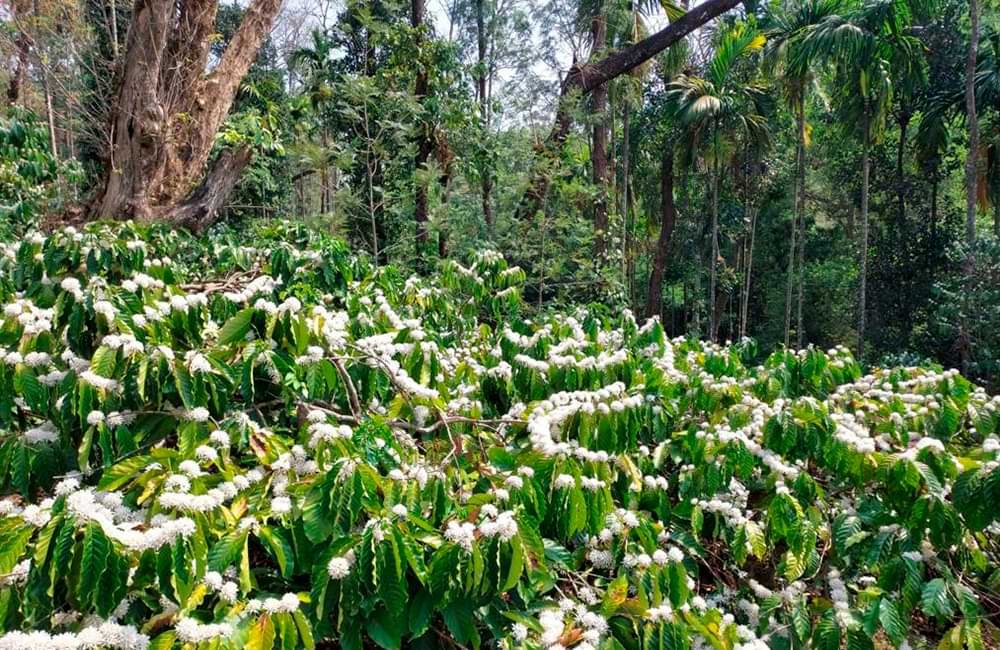Espresso
Cacao nibs, orange, specied
Baba Budangiri Hills | |
1.100 msnm. | |
S-795 | |
Washed | |
Mr. Narendra | |
Harvest 2022 |

Meghal Estate is the name of a farm located in the Baba Budangiri Hills, in southern India. The farm has 60 hectares and is located at an altitude of 1100 meters above sea level.
Coffee trees grow under the shade of more than 150 different trees, mainly oaks and cedars. The shade slows down the ripening. The trees also protect the coffee from bad weather, such as wind, rain, and extreme heat.
The fallen dry leaves create a natural compost when they decompose, making the use of chemical fertilisers unnecessary.
The Baba Budangiri Hills, and the Meghal Estate in particular, are home to a wide variety of wildlife, including bison, elephants and peacocks.
The coffee trees are irrigated with fresh water from mountain springs, thanks to the abundant rains.
India´s History of Coffee

The Baba Budangiri Hills owe their name to a 16th century Sufi, revered by both Muslims and Hindus: Baba Budan.
Baba Budan has a special place in coffee history, as it is said that he was the first to break the monopoly held by the Arabs on the cultivation of this plant.
This wise Sufi made the Hajj pilgrimage to Mecca. When he finished he went through Yemen, probably as the starting point of his journey back.
In Yemen he tried the coffee drink, which was offered to pilgrims as a revitalising tonic on their long journeys. Baba Budan immediately recognized the gustatory and psychoactive delights of coffee and wanted to take this plant seeds back to India.

At that time, exporting green coffee seeds was banned to maintain Yemen’s monopoly on this crop, and thus protect this valuable source of income.
But Baba Budan, defying the authorities, hid seven seeds. Some say that he hid them in his long beard and some that he hid them in his cane.
Be that as it may, once he returned to India, he planted the seeds in his native land, which had, and still has, ideal conditions for coffee cultivation. Since then, this region accounts for more than 80% of all India’s coffee production.
The Meghal Estate, a Family Business
Mr. Narendra is a third-generation coffee farmer. His family has been growing coffee on this farm since the 1890s. In a country that predominantly drinks coffee, this is not an easy feat.
The farm not only produces excellent coffee but is an example of fair workers’ treatment and sustainability.
Farm workers have free decent housing for their families, with water and electricity. They are also provided with food, health care, maternal care and other basic necessities. All these free of charge.

In addition, due to its location and way of farming, based on taking advantage responsibly of natural resources and maintaining biodiversity, this farm is an example of sustainability.
In the last 6 years, Mr. Narendra, who is at the head of the family business, has focused on improving cultivation techniques and processes, achieving excellent quality coffees.
Coffee cultivation at the Meghal Estate Farm
The coffee trees chosen for the specialty coffee lots are of the Arabica subspecies and the S-795 variety. They are treated with a washing process.
The harvest season is during the months of November and December. During the harvest, the cherries are picked by hand in three rounds, selecting in each round only those that are at their optimum point of ripeness and leaving the rest for the next round.

At Meghal State they specialize in preparing their coffees with the classic washing process, this consists of pulping the cherries once they have been picked before washing them and putting them to dry in the sun on raised beds. Then the coffees are left to rest between 30 and 40 days.
The cherry mucilage and skin, recovered after the washing process, are broken down with the use of natural microbes for 90 days and then returned to the soil as a natural fertilizer.




